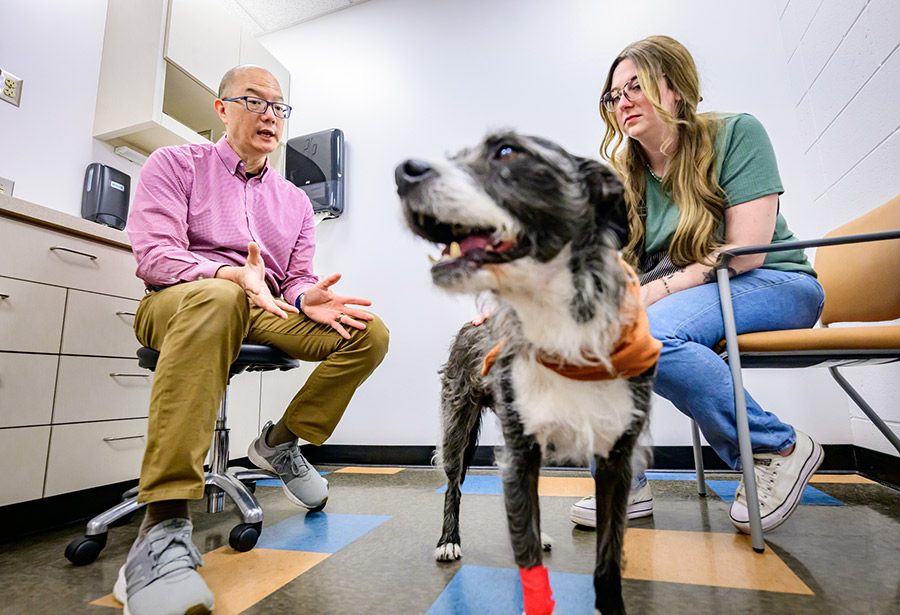Melissa Rodriguez was accustomed to shifting her perspective. So, when her summer research project took an unexpected turn, she was able to pivot and find a new way to pursue her goal of improving global food safety and supply.
Rodriguez, a second-year veterinary student at the University of Illinois College of Veterinary Medicine, was born in the United States but spent most of her life and undergraduate career in Puerto Rico. Last summer she was one of thirteen students to be recognized as a fellow for the Foundation for Food and Animal Research. Rodriguez’s background motivated her to research a low-cost tool to detect pathogens in swine at meat processing plants.
“Seeing the huge difference between production here and production there (Puerto Rico) just made me more aware and more conscious of a lot of problems,” she said. “I want to be able to help them improve.”
Changing Focus
Rodriguez entered her FFAR Fellowship with a detailed plan to construct a tool that could track swine disease, such as deltacorona virus (PDCoV), influenza A virus (IAV), and porcine respiratory and reproductive virus (PRRS), by analyzing wastewater at meat packing plants. She quickly came across a hiccup in her project.
Seeing the huge difference between production [in the U.S.] and production [in Puerto Rico] just made me more aware and more conscious of a lot of problems. I want to be able to help them improve.
– Melissa Rodriquez, Class of 2025
Because of the coronavirus pandemic, Rodriguez was unable to obtain wastewater samples. She had to adjust her focus and look at the situation from another perspective.
“We had a lot of troubleshooting in my project,” Rodriguez said. “We were not able to collect the wastewater samples, which was our initial goal. So instead, we just focused on trying to perfect the LAMP assay.”
Closer Look at LAMP
Rodriguez explained that “LAMP,” or loop mediated isothermal amplification, is a newer, less-known genetic amplification technique. Unlike other amplification methods, LAMP works faster and requires only one temperature. She shifted her project’s focus to improving the quicker, more cost-effective technique.
Instead of working from wastewater samples, Rodriguez extracted DNA from swine diseases grown in a laboratory and used the LAMP method to amplify genes when a virus was present.
“Our ultimate goal is to be able to perfect the (LAMP) assay, and then be able to troubleshoot it and know what type of sample we can run it,” Rodriguez said. “(We want to know) how concentrated the samples have to be or how diluted they have to be. Then, the bigger picture is to take the information and go to the slaughterhouses and packing plants.”
Sharing Ideas, Making an Impact
As a fellow of FFAR, Rodriguez attended the National Veterinary Scholars Symposium to present her research at poster sessions alongside hundreds of students across the United States. She said because LAMP is a less-known method used for genetic amplification, her focus on this technology in her project allowed her the opportunity to teach others.
“It was good networking event among students,” Rodriguez said. “It included active conversations of sharing ideas or asking questions. People even asked me what I thought they could change with their research projects.”
With the opportunities she has had through FFAR and the University of Illinois, Rodriguez said she hopes to help the Puerto Rican animal industry to ethically increase animal production while increasing food safety and supply.
“With the resources that I have here and my background growing up in Puerto Rico, I feel like I can bridge that gap,” Rodriguez said.
By Haley Bickelhaupt




